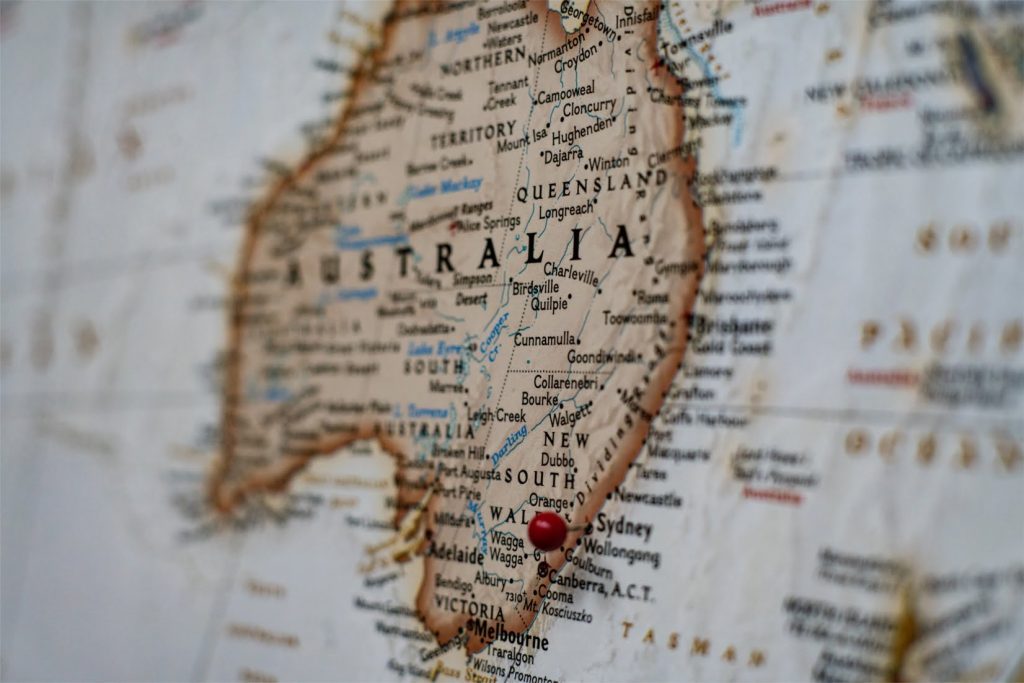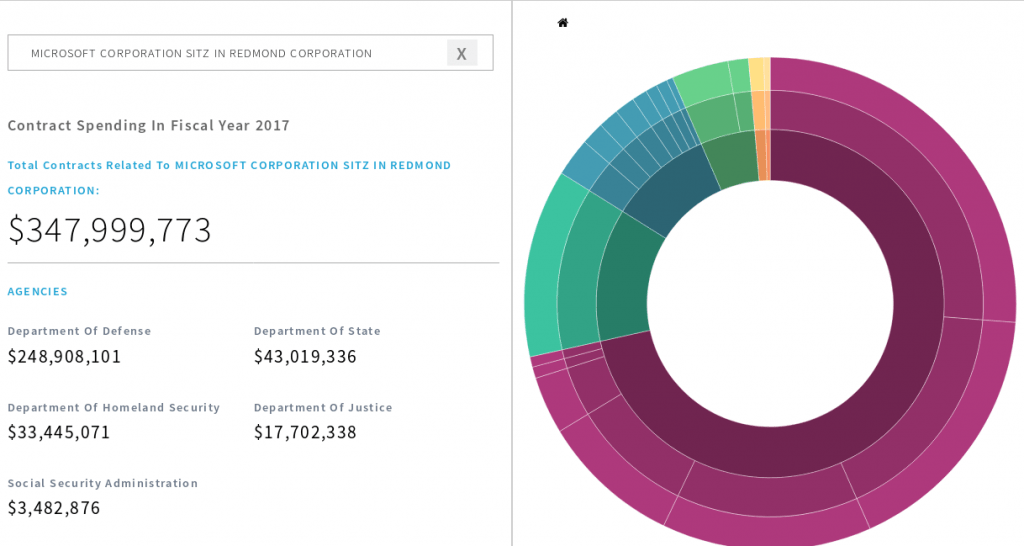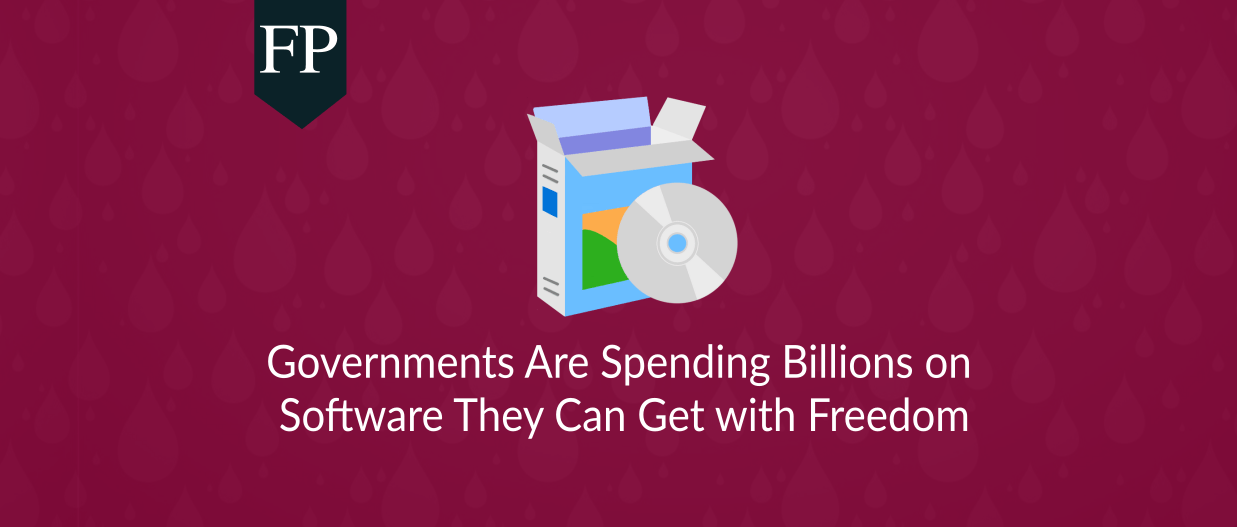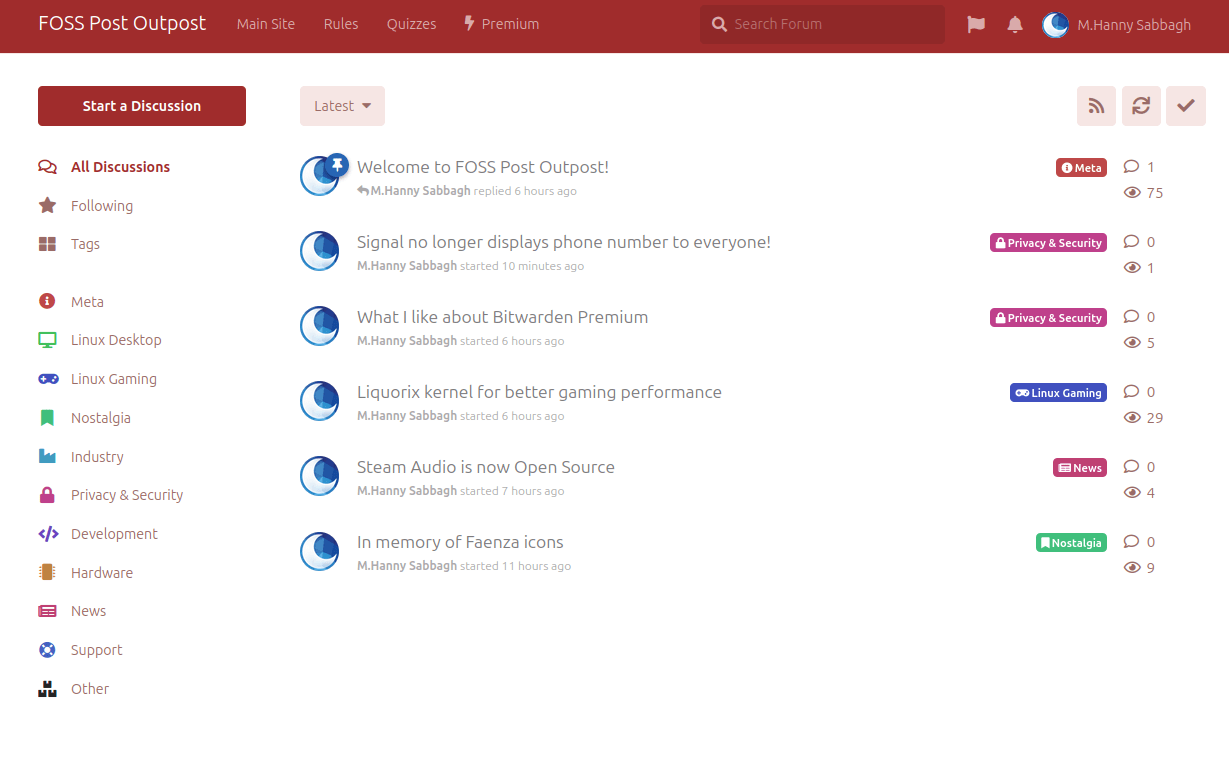Table of Contents:
How a Software is Owned
In the proprietary software world, when software is released, and when users buy that software, they don’t usually buy the entire software, but instead, they buy what’s known as an end-user license agreement (EULA). This EULA gives them the right to do only some specific things with that software. Usually, users are not allowed to copy, redistribute, share or modify the software, which is the main difference between proprietary software and free software (as in freedom).
It’s extremely annoying and sad that in the 21st century, governments all around the world are still paying millions of dollars for software each year; It’s more sad, because they are not paying for software, they are paying for a license to use a software in a specific way on yearly basis. Now say you were a country with millions of machines, can you just imagine the amounts of money that we are spending worldwide just to get those computers working?
More importantly, you don’t get the software. You just get a usage license that you must renew after a year. While free software gives you the 4 basic freedoms: The ability to read, modify, redistribute and use the software in any way you want.
Choosing to run a proprietary software over free software-where alternatives do exist-is an extremely wrong decision that governments are doing worldwide. And by choosing proprietary software over free software, we are losing huge amounts of money that instead could’ve been spent on health, education, public infrastructure or anything else in the country.
More importantly, the money that’s going to to pay for this software and its support could’ve been invested in developing alternative free solutions their selves; How about instead of spending $50M per year on the EULAs of Microsoft Office because “LibreOffice is not good”, that you just try to invest $25M in LibreOffice itself for one time only and see what happens? As a country, your technical infrastructure will develop if you turn it not just to a user of free software, but a producer as well. And only free software would allow you to do that.
During the period of our investigation, we checked the financial reports of many governments worldwide and their spending on IT. The amounts of money that governments are paying per year for proprietary software is very huge. And most of it isn’t actually for the licenses of using that software, but for the support.
It’s an issue, because it’s not going to end. Governments are claiming problems and issues in transferring to free software, and in doing that, they keep paying millions and millions of dollars each year, and continue to do so indefinitely; They have no plans to switch to free (as in freedom) locally-developed alternatives.
Let’s see some examples of how governments worldwide are spending their money on software.
Examples of Governments Spending on Software
Australian Government

It’s reported that between 2013 and 2016, the Australian government spent a total of AU$364M just on Microsoft’s contracts. Those contracts included support services, software licenses and other logistics that Microsoft is generally providing.
Seeking more detailed numbers, we went for the official Australian government financial reports of 2017-2018. This report showed that in just 1 year, the Australian government had spent AU$136M on Microsoft’s contracts, a total of AU$719M just on SAP contracts, AU$333M on Oracle contracts and AU$87M on VMware contracts.
In total, the Australian government spent AU$1.27B just on software from those 4 companies, its licenses and support just between 2017 and 2018.
Egyptian Government

The Egyptian case is interesting because it shows that the decision of which software type to use can be critical in times of crises.
In 2012, following the Egyptian revolution and the hard economical crises the government was facing, the government back then announced that it will be paying USD$43M just to buy Microsoft Windows + Microsoft office for around 150,000 computers in Egypt.
43 Million dollars may not sound much to you, or in comparison to other countries; But it’s huge in terms of a poor country like Egypt which was trying to survive political/economical crises. Many activists tried to convince the government back then to refuse to sign the deal and start a campaign toward free software, but failed. Activists said this amount of money should be spent on much more important issues to the people instead of software licenses and support for just an operating system and an office suite.
Please note that we couldn’t find more detailed resources on the other contracts that the government signed back then with other proprietary software makers; This is just for 1 company.
USA Government

The US federal government is one of the biggest spenders on software in the world. In 2017, the federal government had spent around USD$350M on Microsoft contracts alone:

The US federal government also spent USD$1.13B on IBM contracts, USD$70M on Oracle contracts, USD$35M on Capgemini contracts and USD$27M on SAP contracts. All of those contracts are just in 1 year.
Please note that this data is related only to the federal government.
In addition to that, it’s reported that the Department of Defense by itself alone in the government had spent a total of USD$1.5B just on Microsoft contracts between 2000 and 2017.
What’s the Alternative?
Enthusiasts for decades were recommending switching to free software instead of proprietary software. But most governments over the decades have shown extreme rejection of that idea. On the other hand, some other governments like in Brazil, Spain, Russia and many others have demonstrated successful results in switching to free software. Some others, however, like Munich in Germany, even switched back from free software to proprietary software.
Where’s the issue, and how can it be solved then?
Governments usually say that they do not have the necessarily expertise to do the switch, they also say that usually nobody is there to provide support (E.g LibreOffice comes without support). Then the lazy conclusion follows: “Let’s just pay few millions and rest”.
But both of these issues can be solved via establishing locally capable IT professionals in the most needed free software fields with the goal of transferring the country to free software. For example, a country willing to use Ubuntu + LibreOffice on all of its machines, could start a campaign with a specific budget to teach few hundreds of engineering students how to maintain and develop free software. After few years, those people should be ready to be used in such transformation.
Once the transformation is done, governments can rely on its local expertise instead of paying millions to mostly foreign companies to provide support services for their software.
This would be a triple hit, because:
- First it saves you money, tons of it.
- Then it provides jobs for thousands of people, and allows you to even sell support or other free software services to other countries.
- And finally it localizes the technology sector of the country, making it free of foreign control.
Governments usually take the lack of funding as an excuse to not do anything. But the figures above prove that they are lying; If you can pay $1 billion per year on proprietary software, then you surely can pay less than $100M over the years on free software to save you the money you are paying each year.
What Should We People Do?
- Push your agenda! Call your representatives in your parliament and talk to them about the issue, and explain to them what free software is, and why it’s important to adopt it on the country level.
- Start local activities to spread awareness about free software.
- Publish blog posts like this one, explain why the switch is important and what are we currently losing.
- Demonstrate how free software are really more of quality than proprietary ones.
- Support the free software you love and work on making them better.
- The possibilities are endless..
Conclusion
We hope that we succeeded in demonstrating why all of this is important and how to get it done. At the end of the day, we are talking only about software; Things we use on a computer to do our daily tasks. It’s also important to remember how amazing people those free software developers are, and also to be thankful for them.
Liked this post? Consider giving a donation or sponsoring it.
With a B.Sc and M.Sc in Computer Science & Engineering, Hanny brings more than a decade of experience with Linux and open-source software. He has developed Linux distributions, desktop programs, web applications and much more. All of which attracted tens of thousands of users over many years. He additionally maintains other open-source related platforms to promote it in his local communities.
Hanny is the founder of FOSS Post.




